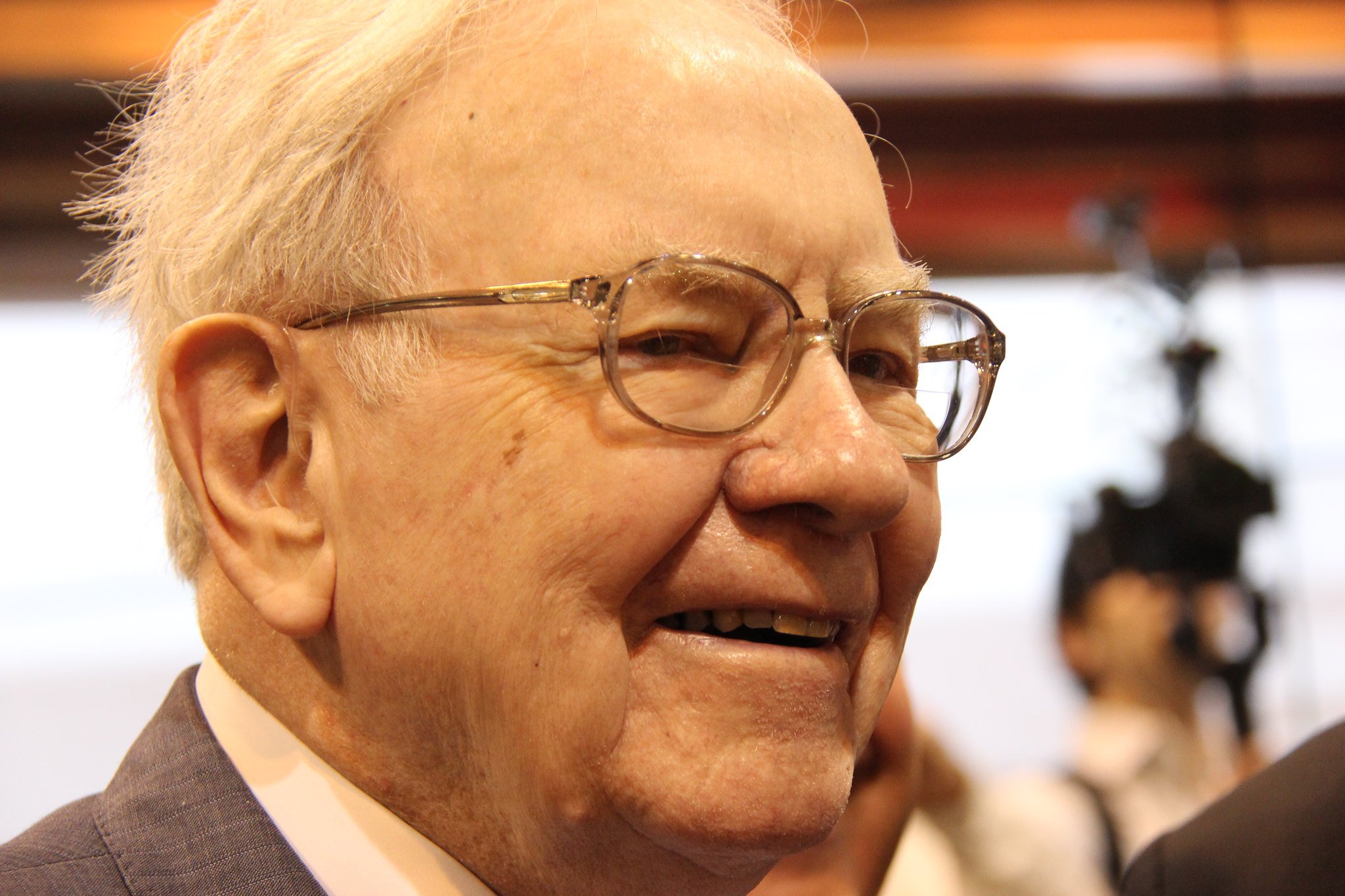One of the most popular Warren Buffett quotes on investing is, "Our favorite holding period is forever."
Many take this to believe the Berkshire Hathaway (BRK.A 0.72%) (BRK.B 1.14%) CEO never sells stocks. Of course, anyone who's been paying attention to Buffett's moves over the last few years knows that's not true. Buffett sold $143 billion worth of stocks on Berkshire's behalf last year.
While Buffett buys stocks in companies he plans to hold forever (or at least a very long time), he's also mindful of valuation. In his 1994 letter to shareholders, he said, "We try to price, rather than time." When a stock becomes expensive, Buffett is more inclined to sell it.
Buffett did a lot of selling in 2024, and he continued selling a handful of Berkshire Hathaway's holdings in the first quarter of 2025. He focused on the portfolio's financial stocks in particular, including Bank of America (BAC 1.39%) and Citigroup (C 1.79%). With the sales proceeds and the cash flow from Berkshire's owned and operated businesses, Buffett piled more into one high-yield investment.
Here's what investors need to know.

Image source: The Motley Fool.
Taking money out of the banks
Buffett sees the current environment as extremely favorable for selling stocks. Not only are valuations relatively high compared to historic norms, tax rates are historically low. At last year's Berkshire Hathaway shareholder meeting, Buffett expressed doubt over whether the current low corporate tax rates could continue on into the future. As a result, he's been taking advantage of the low rate. In fact, he bragged about how big Berkshire's tax bill was last year in his 2024 letter to shareholders. (That said, the House recently passed a bill to extend the corporate tax rate.)
Buffett's biggest focus for trimming his positions in Q1 was Bank of America. Berkshire originally acquired a stake in Bank of America in 2011, buying $5 billion worth of preferred stock along with warrants to buy common shares at about $7.14 each. He exercised those warrants in 2017 when the dividend from the common stock exceeded the preferred shares. He continued to add to the position through 2020, but after cutting shares for the last few quarters, Berkshire owned just 631 million shares as of the end of Q1.

NYSE: BAC
Key Data Points
Bank of America struggled amid the rising interest rate environment after shifting its securities strategy to hold longer-dated bonds. As a result, its net interest income dropped considerably as rising fed funds rates meant it often paid out more on loans than it took in. But with interest rates starting to come down, Bank of America is set up for better results going forward. Nonetheless, the stock has seen its value climb from about 1.3 times tangible book value at the start of 2024 to about 1.6 times tangible book value today. That's apparently too expensive for Buffett.
Buffett completely exited Berkshire's position in Citigroup last quarter. He initially bought the stock in 2022 after it was beaten down by the market as it faced regulatory challenges and started a strategic shift in its business to sell off international segments and focus more on commercial banking, U.S. consumer business, and global wealth management. However, it continued to put up disappointing financial results, trailing its competition in terms of profitability. It seems Buffett's patience has run out even though the stock currently trades for just 0.8 times its tangible book value.

NYSE: C
Key Data Points
Bank of America and Citigroup weren't the only financial stocks on Buffett's chopping block last quarter. He also exited Berkshire's position in Brazilian neobank Nu Holdings while trimming Capital One Financial. Banks, insurance and finance stocks ended Q1 accounting for 32% of Berkshire's portfolio, down from 34% at the end of 2024.
Overall, Buffett's stock sales raised $4.7 billion. While he spent another $3.2 billion buying other stocks, he clearly has a favorite place in which to invest excess cash from stock sales and operations right now.
Buffett added $13.8 billion to this high-yield investment last quarter
Buffett's recent stock purchases have been relatively small. That's not for lack of wanting to invest more cash in equities, but simply a matter of where Buffett can find value. Specifically, he's only seen value in relatively small companies lately. And that means he can only invest so much of Berkshire's capital in one go. It's a lot easier to put tens of billions of dollars to work in a $1 trillion company than it is in a $25 billion company.
As a result, Buffett has ended up putting the bulk of Berkshire's growing cash pile into U.S. Treasury bills. In fact, he made net purchases of government bonds totaling $13.8 billion last quarter. That brings Berkshire's total Treasury holdings to $314 billion. When combined with cash holdings, Buffett is sitting on $347.7 billion of capital.
In a previous iteration of Berkshire Hathaway, Buffett may have bought longer-dated bonds. However, Buffett was burned in the 1970s amid rising interest rates while holding 15-year bonds. That led him to admit his mistake and reevaluate his position on short-term investments like Treasury bonds. "We insist on safety over yield with respect to short-term investments," Buffett writes in every quarterly report.

NYSE: BRK.B
Key Data Points
That said, the yield on short-term bonds remains healthy. The yield on six-month Treasuries is 4.3%, only slightly lower than longer-dated issuances. Those rates could come down over the next couple of years as the Federal Reserve is widely expected to significantly lower the fed funds rate over time. However, Buffett is happy to collect a significant amount in interest while he waits for a big investment opportunity. Berkshire will collect roughly $3.4 billion in interest next quarter.
Buffett preached the importance of remaining patient at Berkshire's annual shareholder meeting this year. "Things get extraordinarily attractive very occasionally," he said. "I don't know when -- it could be next week, it could be five years off, but it won't be 50 years off -- we will be bombarded with offerings that we'll be glad we have the cash for."
It's important to remember Buffett is playing a different game than the average investor. His universe of potential investments is much smaller. So, while Buffett is piling into Treasuries, the average investor may be able to find even better returns by putting more money into smaller stocks.






